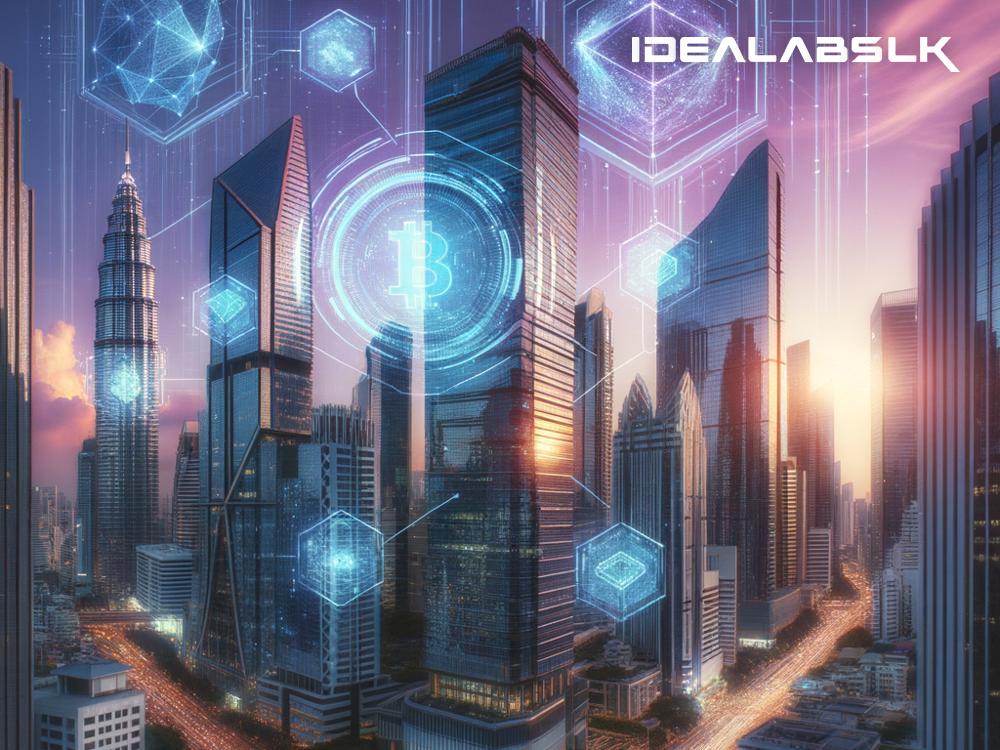Blockchain and AI: Transforming Real Estate Transactions
In the world of technology, two buzzwords that have been lighting up the horizon are Blockchain and Artificial Intelligence (AI). While they've already begun revolutionizing industries individually, their convergence is set to redefine the way real estate transactions are conducted. Let's delve into this intriguing intersection and discover how it's shaping the future of the property market.
The Basics Simplified
First off, what are Blockchain and AI? Imagine Blockchain as a digital ledger that's completely transparent and tamper-proof. Once information is recorded, it's nearly impossible to change. This characteristic makes it an ideal base for trust in various transactions, including real estate.
AI, on the other hand, is like having a super smart assistant that learns from data. It can analyze patterns, make decisions, and even predict future outcomes, saving time and effort in complex processes.
Together, these technologies promise a real estate landscape that's more efficient, secure, and user-friendly.
A New Era for Real Estate
Traditionally, real estate transactions involve a heap of paperwork, numerous intermediaries, and a long waiting period. However, the integration of Blockchain and AI is paving the way for a transformation that addresses these challenges head-on. Here's how:
1. Streamlined Transactions
Blockchain introduces smart contracts – digital contracts that automatically execute transactions when certain conditions are met. This can drastically reduce the processing time for buying or selling properties by eliminating the need for middlemen and manual verification. AI further enhances this efficiency by automating administrative tasks such as document verification and risk assessment, making the entire process faster and smoother.
2. Enhanced Security and Transparency
With Blockchain's immutable ledger, every transaction detail is recorded securely and remains accessible for verification, reducing the risk of fraud. Combined with AI's ability to detect unusual patterns or discrepancies in data, the real estate market becomes a safer environment for all parties involved.
3. Improved Decision Making
AI excels in analyzing vast amounts of data, including market trends, property prices, and consumer behavior. This capability enables buyers, sellers, and investors to make better-informed decisions, backed by accurate and comprehensive data. Whether it's identifying the best time to buy or sell, or pinpointing the ideal location for investment, AI offers unparalleled insights.
4. Personalized Customer Experience
AI-powered chatbots and virtual assistants can provide instant, personalized responses to client inquiries 24/7, enhancing customer service without the need for a human on the other side round the clock. Meanwhile, Blockchain can securely store personal preferences and transaction history, enabling real estate services to tailor their offerings to individual clients.
5. Tokenization of Real Estate Assets
Blockchain allows for the tokenization of real estate assets, enabling property to be divided into tokens that represent a share of the underlying asset. This not only democratisizes investment by lowering the entry barrier but also adds liquidity to the market. Investors can buy and sell tokens easily, without the complications of traditional real estate transactions.
Looking Ahead
While the integration of Blockchain and AI in real estate is still in its early stages, the potential benefits are immense. Efficiencies in time and cost, enhanced security, and personalized services could transform the real estate market into a more accessible and user-friendly industry for all.
However, it's also important to note that with new technology comes new challenges. Regulatory, technical, and adoption hurdles will need to be addressed as these technologies evolve and become more mainstream in real estate transactions.
The Takeaway
The fusion of Blockchain and AI is not just a passing trend; it's a glimpse into the future of real estate transactions. This combo has the power to make buying, selling, and investing in real estate more transparent, efficient, and secure than ever before. As we look forward to this exciting future, one thing is clear: the world of real estate is on the brink of a major technological revolution, and there's no turning back.
In conclusion, the journey of integrating Blockchain and AI into real estate is just beginning. It promises a world where transactions are not only faster and safer but also more equitable and accessible. By keeping an eye on this development, we can all prepare to embrace the new era of real estate, ensuring we're ready to navigate its upcoming innovations and opportunities.

